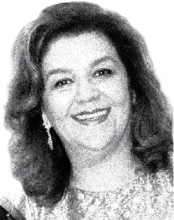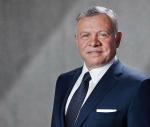You are here
Meeting King Abdullah
Mar 16,2019 - Last updated at Mar 16,2019
Ten days ago I received an invitation to attend a briefing with His Majesty King Abdullah alongside a small group of “politicians and media personalities”.
The main news emanating from that meeting has long since been published and discussed. Some of my colleagues attending the meeting had the opportunity to write or speak of the discussions with His Majesty on key international and regional developments. Many have also delivered His Majesty’s perspective on developments on the local front especially as they tackled timely concerns of regular Jordanian citizens in this time of challenging economic and political developments.
Yet I think the critical take away from that meeting for me was a sense of unique insight into the leader. An insight that I now understand I could only have formulated after having this opportunity to hear, listen and observe our Monarch breathe life and tangible authenticity into the political words, statements, speeches, discussion papers and news that I had followed and commented on for nearly 20 years.
A stark and very strong impression I received from that meeting is that the King is very well informed, connected and aware of the political and socioeconomic conversations in Jordan and at all levels. As the conversations took all of us back and forth to discuss the multiple layers of Jordan’s current situation, the King was able to provide more detail on each case, update us on developments from his office, the government or other involved parties, and even provide a timeframe for the resolution of a case — if a resolution was possible or imminent.
An equally stark impression is that the King stands at equal distance from all Jordanian citizens regardless of their origin, ethnicity, gender or religion and embraces the concerns of all citizens and residents of Jordan without bias or judgement. As the discussions moved across the meeting table and the concerns of multiple population groups were put forward to His Majesty as an urgent priority, the King was able to diplomatically reposition those concerns within the higher priorities of the country as a whole. He articulated his vision as one that embraces a holistic approach to prosperity and economic advancement for all in Jordan. In the process, he appeared to downgrade piecemeal solutions targeting specific groups unless those were in fact requiring unique attention.
This was a critical finding for me in particular, if only because my writing over the many years had focused specifically on the need to adopt an equality-based and inclusive political narrative as a brand of the Kingdom. In a country where the prevalent, or at least the loudest, political narrative appears to reflect, or propagate, a division or a policy of favouritism based on ethnic origins, tribal or familial affiliation, political money and religious background, the King appeared to be free from that narrative and able to feel and empathise with the concerns of the different groups equally. In that sense, he added validity to the messages in the discussion papers which did speak with an elevated sense of the rights, duties and responsibilities of all citizens equally. Those values were clearly, in my opinion, not only words on paper but a reflection of the man himself.
Having said that, if the King appeared to favour one group in Jordan, it would have to be the military. Describing himself as a military man at one point during the meeting, he appeared to be more comfortable demanding the professional ethics, values and efficiency usually expected of military-type institutions. Without really again making a reference to the military directly, his concerns about the performance of the public sector, private sector, youth initiatives and political parties, disparate and unique as each one of those was, were thematically mixed with an appeal for more rational and pragmatic efficiency, precise planning and commitment to tasks at hand. Without really having to say so, it appeared that the King wished we all worked to those exacting standards.
Where we Jordanians may be inclined to see the monarchy in Jordan as an embodiment of His Majesty’s absolute authority over all public and private functions and institutions of the state, it was interesting to see the King describe the separation of authority between the Royal Court and the government for example as a key ingredient of how he rules. Also, it became very clear that while many Jordanians may believe the King could, or should, wave a magic wand to bring about change from above, the King appeared more focused on how Jordanians could organise themselves behind their priority issues and create their own critical mass pushing forward with those priorities.
This again was a revealing dynamic to what seems to be a key element of King Abdullah’s leadership style.If one was to say that the country should be moving towards adopting the formula of good citizenship as a yardstick to determine merit and access, there was what I thought were two clear signals from the King in this regard: one was that he personally believed in those values, but the immediate second signal was that he has yet to see a critical mass of citizens actively working to defend and push forward with that mindset and approach.
The King’s assessment of the situation, one could surmise from what was said, appeared to be that the move from the “entitlement mentality” has not yet received the popular and practical validation it needs from a sufficiently substantial group of citizens for it to be considered as a demand that has the support of Jordanians. Whether through organised political parties or even the so called “silent majority” speaking up in favour of, or even defending, steps in that direction, the King appeared to be looking for a serious, organised and pragmatic critical mass that could own the journey, painful as it may be in the interim, that Jordan would have to take to that end.
I had delayed the writing of this column for several days in order to reflect on the meeting more deeply. I toyed with the idea of writing only on the issues that were raised during the meeting and depersonalising the experience. But I also honestly felt that what was most important to deliver to readers from that meeting is just how charismatic, well-informed, pragmatic and yet empathetic King Abdullah really is in person. Also, it was important to validate that the words we Jordanians hear or read in papers or statements issued by the King really are a reflection of his thoughts and messages as I heard them from him in that meeting.
King Abdullah brought gravitas and depth of knowledge to the meeting. He also came across as very clear on his leadership vision, mission and legacy within Jordan and among his people but also as a regional and international leader. Ours was one of several meetings he had that day before he again boarded a plane to advocate for Jordan globally. He clearly had an agenda to tackle rising criticism locally but was also operating under an urgent call to address speeding, and worrying, developments regionally and internationally. In retrospect and with reflection on the many challenges that must have played on his mind that day, and perhaps always as the King of Jordan, I am struck by the composed calm he exuded as he walked us through all the challenges we face as a county, but also a truly dignified balance of pragmatic calculation and hope for Jordan’s future.
In summation, I come away with two conclusions: Firstly, we Jordanians are truly in good hands under King Abdullah’s vision and leadership and secondly, we need to actively work to unpack and articulate that vision and reflect onto it our own collective experiences and lived realities in order to come up with our common understanding of the Jordan we want.
None of that is going to be easy, but the elements of the formula we need for success appear to be already present: good leadership and good people. What we need now is to build together the institutions, public, private, political, informal and formal, that can serve all of our needs and help us meet all our expectations.












